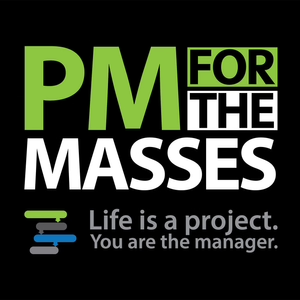
Origins of the Modern Battery Storage Business
11/26/19 • 34 min
Welcome to our second season! Over the next eight episodes, we’ll hear from people who’ve scaled new clean energy technologies, built market-changing companies from scratch, and managed big firms in the face of competitive threats.
In this episode, a pioneer in storage who helped prove out the business case for putting big batteries on the grid: John Zahurancik.
John is the chief operating officer of a company called Fluence, a storage supergroup made up of teams from AES and Siemens. He and his co-founder Chris Shelton were some of the earliest visionaries in the grid-scale storage industry.
“I think at the beginning we faced every doubt, if you will. If there was a doubt to be had, it was mentioned to us. So I think it's referred to as the Holy Grail because no one expects that you'll ever actually find it,” says Zahurancik.
Today, lithium-ion batteries on the grid are surging. Just last year, the global battery market grew 140%, according to the research firm Wood Mackenzie. It’ll double in 2019. And it’ll triple in 2020.
Back in 2006, there were a lot of skeptics. But John saw something that the skeptics didn’t — lithium-ion batteries, when scaled, had the potential to completely reshape the grid.
Resources:
The first storage supergroup has arrived
Long before Tesla, there was AES
Welcome to our second season! Over the next eight episodes, we’ll hear from people who’ve scaled new clean energy technologies, built market-changing companies from scratch, and managed big firms in the face of competitive threats.
In this episode, a pioneer in storage who helped prove out the business case for putting big batteries on the grid: John Zahurancik.
John is the chief operating officer of a company called Fluence, a storage supergroup made up of teams from AES and Siemens. He and his co-founder Chris Shelton were some of the earliest visionaries in the grid-scale storage industry.
“I think at the beginning we faced every doubt, if you will. If there was a doubt to be had, it was mentioned to us. So I think it's referred to as the Holy Grail because no one expects that you'll ever actually find it,” says Zahurancik.
Today, lithium-ion batteries on the grid are surging. Just last year, the global battery market grew 140%, according to the research firm Wood Mackenzie. It’ll double in 2019. And it’ll triple in 2020.
Back in 2006, there were a lot of skeptics. But John saw something that the skeptics didn’t — lithium-ion batteries, when scaled, had the potential to completely reshape the grid.
Resources:
The first storage supergroup has arrived
Long before Tesla, there was AES
Previous Episode

We're Coming Back for Season 2
We're coming back for a new season of ILLUMINATORS!
In our first season, we told stories of disruption in other industries and then applied them to energy.
This season is a bit different. We’re talking to some of the leading thinkers, entrepreneurs and executives in energy — people who’ve grappled with extreme change — and bringing their stories to you.
And of course, we’re going to hear about what they’ve learned from other areas of business, at a time when companies of all kinds are constantly under threat.
We are still in the early stages of production, but we’ll be dropping episodes later this fall. So don’t go anywhere.
Next Episode

How Failed Green Jobs and Energy Poverty Shaped This Founder
In this episode, an entrepreneur who’s applying community organizing tactics and data crunching to clean energy in inner cities: Donnel Baird.
Donnel is the CEO and Founder of Blocpower, a startup based in Brooklyn, New York.
Blocpower helps inner-city buildings lease heat pumps, install new lighting systems, or invest in solar. And it has a piece of software to help microtarget the right buildings and make installations faster.
Donnel grew up in a small apartment in Brooklyn, where he experienced energy poverty and was forced to think about how the environment directly impacts quality of life.
“I think when you're poor you have to be aware of your environment and the kinds of adverse health impacts that can be caused by your environment. That's part of surviving as a poor person in America or any country. And I think that in my family we were, we were definitely super attuned to that,” explains Donnel.
Later, he played a role in the green jobs push within the Obama Administration. It opened his eyes to the limitations of the green building sector.
“The green buildings and energy efficiency industry is fundamentally broken. It has sales problems, it has mechanical engineering and energy efficiency audit problems. It has a huge financing problem, it has a construction and installation problem. It has an M&V problem, and if you pour $7 billion into that failed industry and hyper fragmented industry, we didn't get the results that we would've hoped,” he says.
In this episode, we tell Donnel’s story of frustration, confusion and inspiration that led him to become a founder.
Resources:
- Grist profile: Donnel Baird makes inner cities more efficient
- Nation Swell: How to power a renewable energy startup
If you like this episode you’ll love
Episode Comments
Generate a badge
Get a badge for your website that links back to this episode
<a href="https://goodpods.com/podcasts/illuminators-399284/origins-of-the-modern-battery-storage-business-56035332"> <img src="https://storage.googleapis.com/goodpods-images-bucket/badges/generic-badge-1.svg" alt="listen to origins of the modern battery storage business on goodpods" style="width: 225px" /> </a>
Copy




